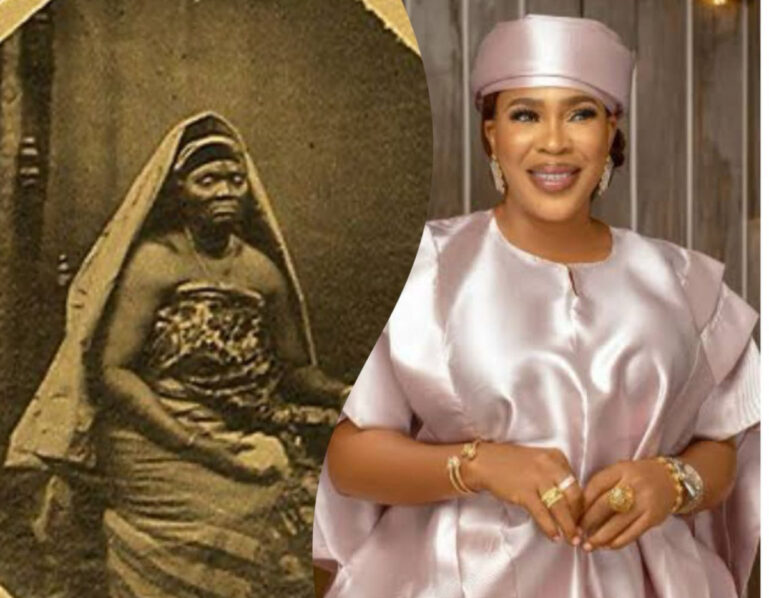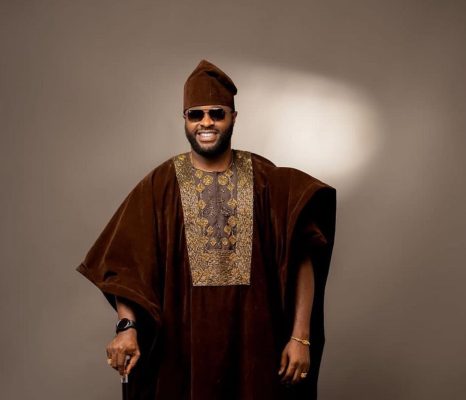
Recently, Nollywood actor and film producer Faithia Williams, also known as Fathia Balogun, announced Efunroye: The Unicorn, a movie.
[ad]
The announcement raised eyebrows among many Nigerians, with prominent critics like David Hundeyin objecting that the film could trigger emotions and open fresh wounds about slavery and Nigeria’s dark past.
Hundeyin acknowledged that slavery was accepted during Efunroye’s time, and viewing a slave trader as inherently evil involves complex logic. However, he argued that using the defence that one cannot judge 1860 by 21st-century standards is akin to white people in South Africa saying that apartheid wasn’t that bad.
He further alleged that some people rewrite history to suit globally insignificant political interests. He warned that once individuals attempt to rewrite the entire history of Africa and the African diaspora to protect a local figure, people will reject it in large numbers.
[ad]
Other Nigerians argued that a film about Efunroye Tinubu is as problematic as imagining how Jewish Germans would feel if a German filmmaker created a supposed artistic interpretation titled Adolf Hitler: The Unicorn or Heinrich Himmler: The Unicorn.
Who Was Efunroye Tinubu?
Efunroye Tinubu (1810–1887), also known as Ẹfúnpọ̀róyè Ọ̀ṣuntinúbú, was a powerful Yoruba female aristocrat, merchant, and slave trader in pre-colonial and colonial Nigeria.
She was politically and economically influential in Lagos during the reigns of Obas Adele, Dosunmu, Oluwole, and Akitoye, helping the latter two gain political power. She married Oba Adele and used his connections to establish a successful trade network with European merchants, dealing in slaves, tobacco, salt, cotton, palm oil, coconut oil, and firearms. She allegedly owned over 360 personal slaves.
[ad]
Following the British victory in the Reduction of Lagos, the British removed Oba Kosoko from the throne and replaced him with Akitoye, who was backed by Tinubu. Akitoye signed the 1852 Treaty with Great Britain, which required Lagosians to abolish the Atlantic slave trade. However, Tinubu secretly continued her dealings in slavery with Brazilian and European merchants, with Akitoye’s consent.
British consul Benjamin Campbell denounced Tinubu’s economic dominance and covert slave-trading activities, which led to conflicts between Tinubu, the British, and rival Lagos merchants. After Oba Dosunmu ascended the throne, Campbell pressured him to exile Tinubu to Abeokuta. While in exile, she supplied munitions to Abeokuta during its war with the Kingdom of Dahomey, earning the title Iyalode of the Egbas.
She died in Abeokuta in 1887. Tinubu Square in Lagos, which features her statue, is named after her, and another statue of her stands in Abeokuta, Ogun State.
Fathia’s Defense
The actress said the reactions generated by the announcement of Efunroye: The Unicorn underscore how passionate Nigerians are about their history and nation. “I am deeply thankful to both my loyal fans and non-fans for the overwhelming support this project is receiving.
[ad]
“With over six million views on my post, I do not take your support for granted—your interest and feedback are truly appreciated.
“However, the passion and emotions surrounding this project, especially on Twitter, while inspiring, have led to some misconceptions that I would like to clarify.
“Firstly, Efunroye: The Unicorn is not a promotional piece meant to glorify or whitewash a divisive historical figure like Madam Efunroye Tinubu, nor does it carry any political intent or affiliation. This film is purely a work of artistic interpretation and storytelling.
“As a filmmaker, my goal is to bring Nigerian stories to life on screen, and this is no exception. The movie aims to present Madam Tinubu’s life in a balanced and nuanced way, showcasing her triumphs, challenges, and complex legacy. It is not an attempt to reshape or glorify history.
[ad]
“Like all historical figures, Madam Tinubu’s story is layered, and this film aims to capture both her strengths and controversies.
“I want to emphasise that Efunroye: The Unicorn is, first and foremost, a creative expression meant to entertain, educate, and spark thoughtful conversations. It is not a documentary or political statement.
“As with any artistic work, it draws from history but also takes creative liberties to make the story more engaging for modern audiences.
“I believe that through this film, we can explore important parts of our history. However, it is essential to understand that it remains a work of fiction inspired by real events.
[ad]
“To clarify further, Efunroye: The Unicorn has not yet been filmed. The project is currently in its development and pre-production phases. My team and I are committed to ensuring that this story is told authentically and impactfully.
“This is a significant project, and we are working diligently to ensure it comes to life with the care and attention it deserves.
“I deeply appreciate the passion this movie has stirred, and I hope that when it is released, viewers will approach it with an open mind and appreciate it as the work of art it was always intended to be.”
Hundeyin’s Response
Hundeyin argued, “Describing someone as ‘a ruler who rewrote history’ and ‘a Unicorn’—both positive descriptors denoting power, praise, and honour—creates backlash for a reason. You can’t claim that you did not intend to glorify or whitewash a divisive historical figure when that’s exactly what the language suggests.
“And our people will accept it because, once again, English is hard. Apart from blatantly glorifying and whitewashing this person, how exactly is Efunroye Tinubu divisive? Who is divided about who she was and what she represented as a slave trader?
[ad]
“By this logic, are we now going to have King Leopold II: The Unicorn, Adolf Hitler: The Unicorn, or Clifford Orji: The Unicorn? Where does this nonsense stop? Where is the line drawn? Does this society have no standards?
“Who asked for this story? If one wanted a Nigerian historical ‘girl boss’ story, there was Queen Amina of Zazzau, Funmilayo Ransome-Kuti, or female Òrìṣà. There are countless stories that need to be told before a foreigner gets his hands on them and casts Cuba Gooding Jr. and Taraji P. Henson.
“Why, of all the possible stories to tell, was the decision made to create a period piece about a slave trader?
“Do we have no history or stories beyond slavery and slavery-related themes? And if we absolutely needed to tell a slave trader’s story, why on earth call her The Unicorn?”
Bimbo Thomas’s Reaction
Responding to the controversy, Nigerian actress and film producer Bimbo Thomas said, “She has her reasons for making such a movie, and I think everyone has the right to create what they want and when they want.
“This is storytelling. There are twists and turns in storytelling, so we don’t know the angle she’s coming from as a filmmaker. It may not be the angle people are expecting. We can’t fully criticise the film until it’s produced.”
[ad]







